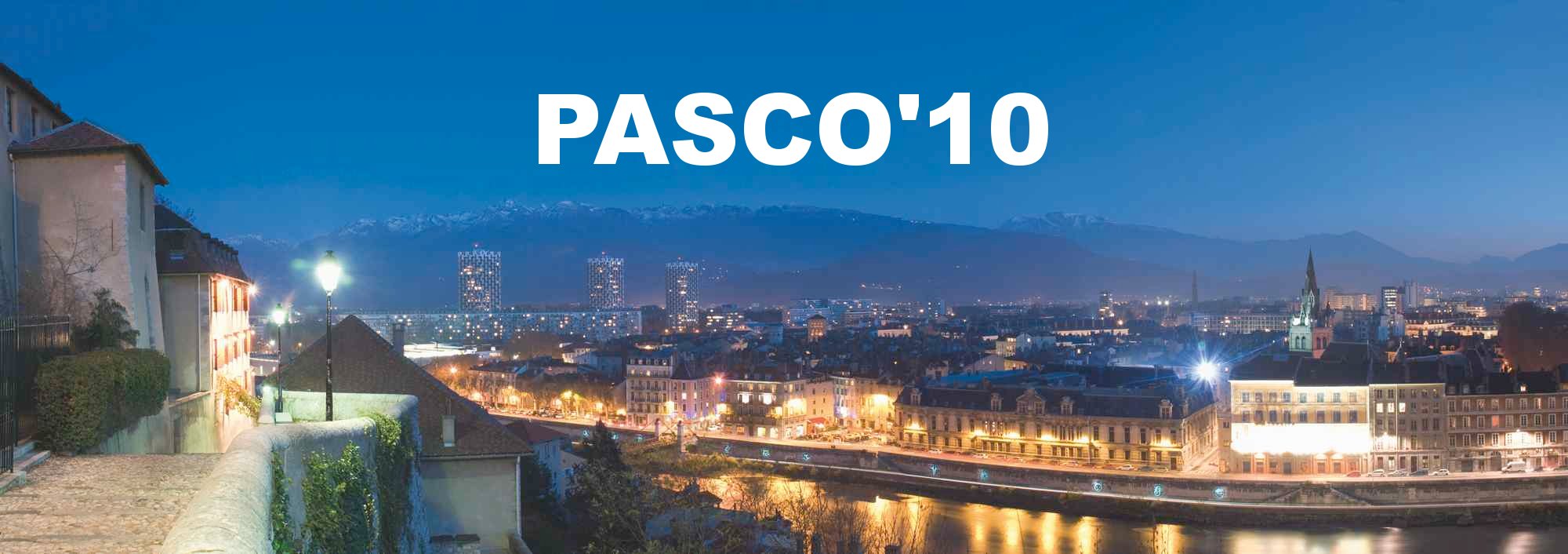 |
| Photo credit: Pierre Jayet – Grenoble Tourisme & Congrès |
|
PASCO 2010 Programming Contest
|
|
Join the computer algebra parallel programming contest organized by
PASCO 2010 at Grenoble - France on 21st July – 23rd July 2010. Be
prepared to face other participants in real time.
Participation to the contest is open to people having
background in computer algebra or parallel computing.
This year the PASCO 2010 Challenges are composed of fundamental
problems
arising in computer algebra and providing rich opportunities
for high performance computing.
The goal is to solve in parallel one (or
several) of those problems. Participants are welcome to propose their
own
challenge, which would be added to the current challenge list, upon
acceptation by the organizing committee.
The current challenge list consists of the following two problems
:
Precise problem
definitions
and precise specifications of the input/output will be posted shortly.
A sequential reference C++ source
code along with some benchmark problems will also be made available.
Rules of the game Basically, the rule of the game
is to solve as many instances with your code as possible. You can use
any software (source code should
be read and tested by the organizing committee), any algorithm and any kind of platforms in
the following list.
Up to date details of the hardware can
be found here.
Each team will have an exclusive access to the machine during several
time slots (1 hour each). During each time slot, the team has to solve
several instances of the selected problem. Each solved instance will
bring back points. For a given problem, the grade will depend on the
following points (sorted by order of importance):
Condition 4. is subjective and the decision will be made by the
organizing committee by looking at the parallel part of the code : the
number of lines of source code, readability, etc.
For each problems, the rank of each participating team will be
presented at the end of the event. The top 3 teams will make a short
presentation about their codes, algorithms and parallelizations.
Participation To participate to the
programming contest, please send a letter of participation intent to
the organizing committee by sending an e-mail to pasco2010@imag.fr, with:
Shortly after
receiving
your letter of participation intent,
the organizing committee will contact you in order to confirm your
participation.
Note that we do not accept remote
participation during the PASCO 2010 programming contest.
To prepare for the contest before the PASCO 2010 meeting,
we will be given access to some machine used for the programming
contest such that you can test the environment and
install your software. This access will be strictly limited to this
purpose
only and we reserve the rights to interrupt your access to our machines
at any time. |